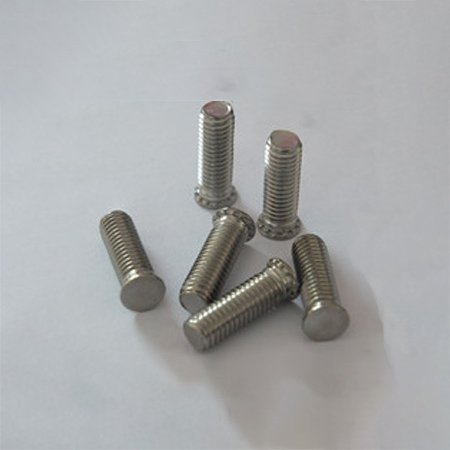Self-clinching Screws are a type of fastener designed to create strong, permanent threads in thin metal sheets. They work by utilizing a unique mechanism that involves pressing the screw into the metal, causing the material to flow into specially designed features on the screw. This process creates a secure and durable fastening without the need for additional nuts or threaded inserts. Here's how self-Clinching Screws work:
1. Preparation: To install a self-Clinching Screw, a pre-punched or pre-drilled hole of the appropriate size is required in the metal sheet where the screw will be inserted. The hole diameter is typically slightly larger than the major diameter of the screw's threads.
2. Insertion: The self-clinching screw is positioned over the pre-punched hole on the side where the screw head will be flush with the surface. The screw is then pressed into the hole using a press or other appropriate tool.
3. Clinching Process: As the screw is pressed into the hole, the metal sheet undergoes plastic deformation. The screw's unique design features, such as knurls or serrations under the head, create an interference fit with the metal sheet. This causes the material around the hole to flow into the screw's threads, effectively creating a secure grip.
4. Thread Formation: The flow of material into the screw's threads creates threads in the metal sheet itself. These threads provide a reliable mating surface for other screws, bolts, or fasteners to engage.
5. Flush Finish: Once the self-clinching screw is fully inserted and the clinching process is complete, the screw head becomes flush with the metal sheet's surface. This ensures a smooth and even finish, which is particularly advantageous for applications where aesthetics or clearance are important.

Self-Clinching Screws offer several advantages, including fast and reliable installation, a clean appearance, and high pullout and torque-out resistance. They are commonly used in industries such as electronics, automotive, aerospace, and sheet metal fabrication. Proper installation techniques and adherence to the manufacturer's guidelines are essential to ensure the self-clinching screws perform as intended and provide a dependable fastening solution.